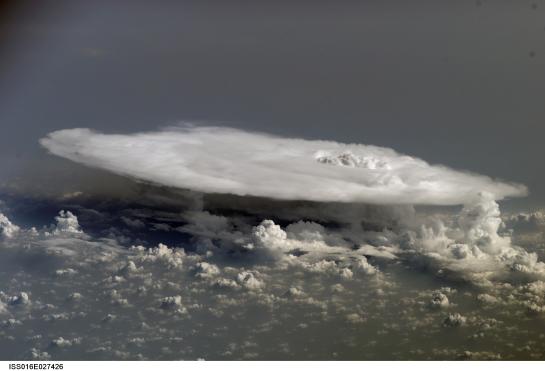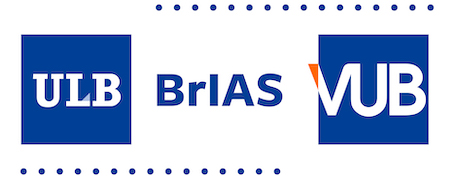Tropical convection and anvil clouds: do they moderate climate change, or accelerate it?
The tropical atmosphere is a colorful canvas of clouds ranging from towering thunderstorms (cumulonimbus) to thin clouds soaring high in the sky (cirrus). Some cirrus clouds are called a cirrus “anvil” when they are spread out from the top of cumulonimbus clouds. Anvil clouds have competing effects on the Earth’s energy balance: cooling the Earth’s surface by reflecting solar radiation back into space and at the same time warming the planet by enhancing the greenhouse effect. It is still under debate whether the net radiative effects of anvil clouds moderate or accelerate climate change and what will be their consequences on the climate system.
This talk first reviews the existing studies on the cloud feedback processes involving tropical convection and anvil clouds, followed by a recap of my own recent work on this topic based on state-of-the-art satellite observations. The results show that the anvil's warming and cooling effects may almost precisely offset each other during the whole day and night. The possible consequences of this behavior on future climate are also discussed.

The past, present and future of food, climate and sustainability
The research work titled “The past, present, and future of food, climate, and sustainability” will explore the status of food, climate, and sustainability while checking the nexus of these three elements from past, present, and future contexts. Bangladesh will be taken as an example from South Asia, being one of the top climate-vulnerable countries and largest deltas in the world. The country is blessed with very fertile land and an enormous source of freshwater, maximized for agriculture and industry, especially in food production.
Freshwater management is crucial for food security, sustainability, and climate resilience. There are different innovations in the country to maximize the freshwater, using well-thought low cost and sustainable management of this invaluable resource. We call these initiatives locally led adaptation and women-led resilience – an opportunity for resilience building and fighting deep-rooted patriarchy.
This country’s food security status will be analysed in the regional and global context.
A team of experts from diversified academic backgrounds will come together to enrich the research work with different dimensions of thinking. That will provide headway to different strings of academia to explore knowledge in the future considering a complex reality, which will benefit the development practitioners and policymakers.
